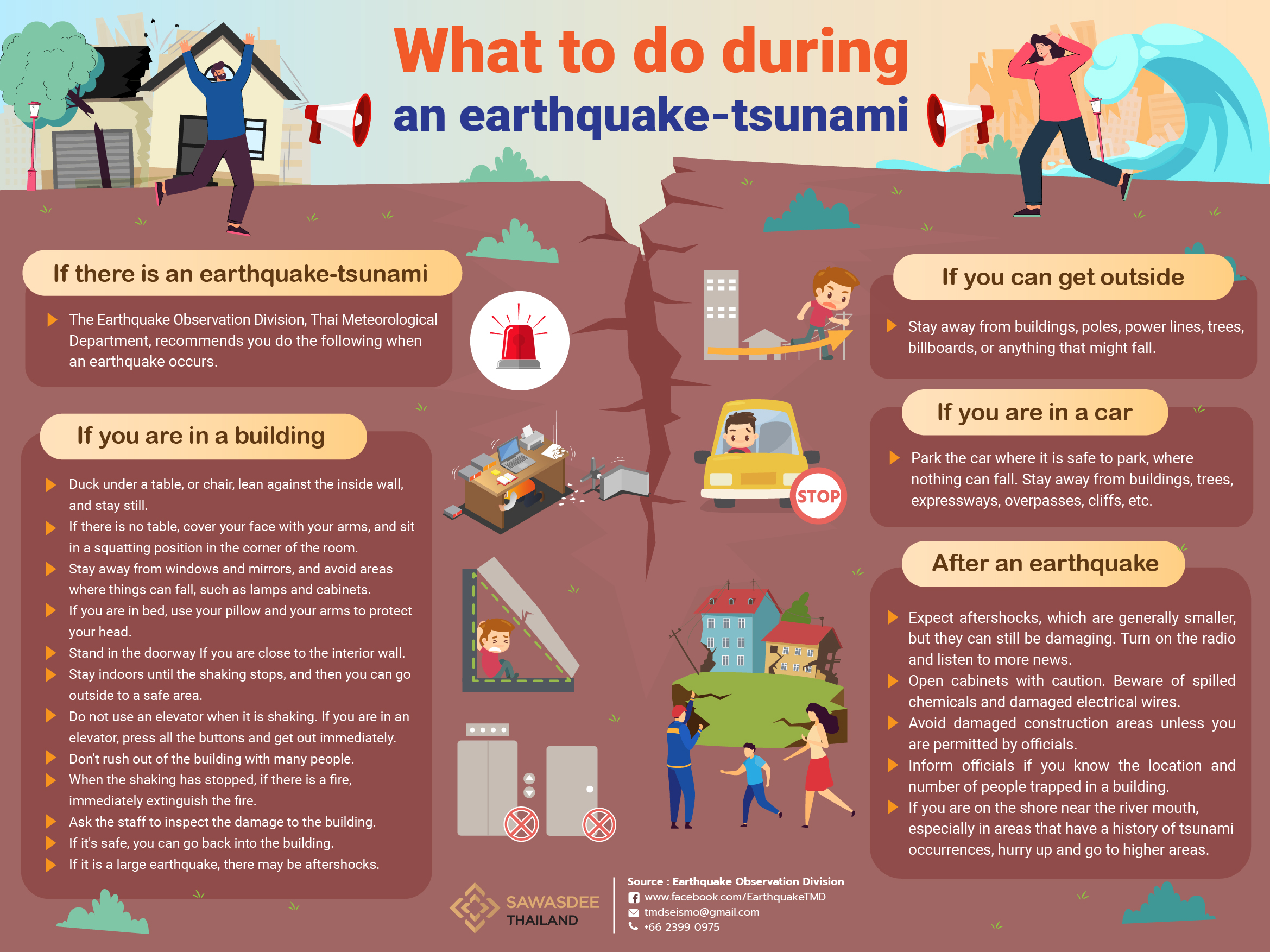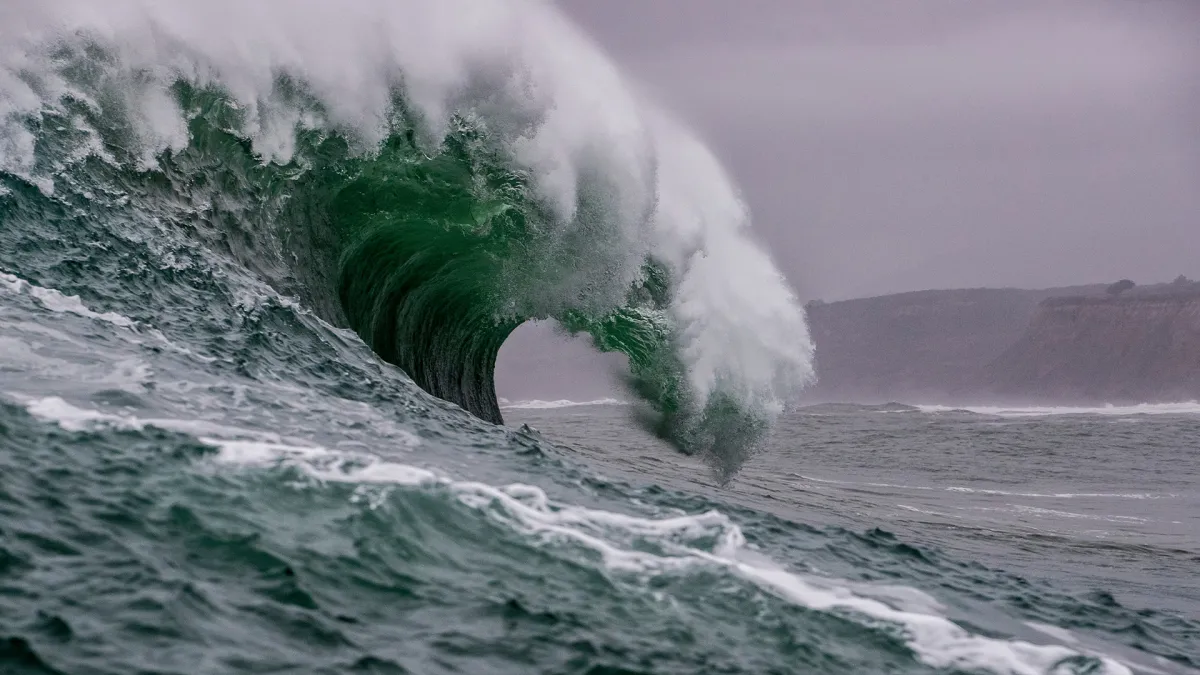What to do in the event of an earthquake or tsunami
Although Thailand is not in high-risk areas for earthquakes, they are considered a natural disaster that cannot be predicted. Therefore, there should be procedures that help people be better prepared to deal with situations that may arise from an earthquake. The Earthquake Observation Division, Thai Meteorological Department, has recommended the following actions when an earthquake occurs.
- Don't panic and be aware of what is happening.
If you are in a building
- Duck under a table or chair, lean against an inside wall, and stay still. If there is no table, cover your head with your arms, and sit in the squat position in a corner of the room. Stay away from windows and mirrors, and avoid areas where things might fall, such as lamps and cabinets. If you are on a bed, use your pillow and your arms to protect your head;
- Avoid areas where things may fall, and stay in a safe area;
- Stand in the doorway if you are close to the interior wall;
- Stay indoors until the shaking stops, and then you can go outside to a safe area. Most of the dangers are caused by falling objects;
- Electricity may go out and the sprinkler may turn on or a fire alarm may sound;
- Do not use the elevator when in a shaking building. If in an elevator, press all buttons and exit the elevator immediately;
- Don't rush out of the building with many people, to avoid being crushed by the crowd;
- When the shaking has stopped and if there is a fire, immediately extinguish the fire and ask the staff to inspect the damage to the building. If it's safe, you can go back into the building;
- If it is a large earthquake, there may be aftershocks.
If you are in the open, outside a building
- Stay away from buildings, poles, power lines, trees, billboards, or anything that might fall.
If you are in a car
- Park the car where it is safe to park, where nothing can fall on it. Stay away from buildings, trees, expressways, overpasses, foothills, etc.
If you are stuck in a damaged building
- Don't panic, stay calm; cover your face with a cloth; knock on pipes and walls as a signal to rescue personnel; use a whistle; try to avoid shouting because heavy breathing can cause you to inhale dangerous material; and help and encourage one another.
After an earthquake
- Expect aftershocks, which are generally smaller, though they can still be damaging. Turn on the radio and listen to more news;
- Open cabinets with caution, as things may shift and fall out when you open the door. Beware of spilled chemicals and damaged electrical wires;
- Avoid damaged construction areas unless you are allowed by the officials;
- Inform officials if you know the location and number of people trapped in a building;
- If you are on the shore near the mouth of a river or on a beach, especially in areas that have a history of tsunami occurrences, hurry up and go to a higher area.
Note.
A tsunami does not occur only once; there will be many waves. And the latter waves may be larger than the first wave. If the water level drops or rises abnormally fast, a tsunami may be on the way. Tsunamis often occur after large earthquakes in the sea. Far out at sea, tsunamis are barely noticeable, but when they reach the coast, they become extremely dangerous.
Source: Earthquake Observation Division, Thai Meteorological Department 4353 Sukhumvit road, Bangna, Bangkok 10260 Thailand.
Tel. +66 2399 0975
For more information


